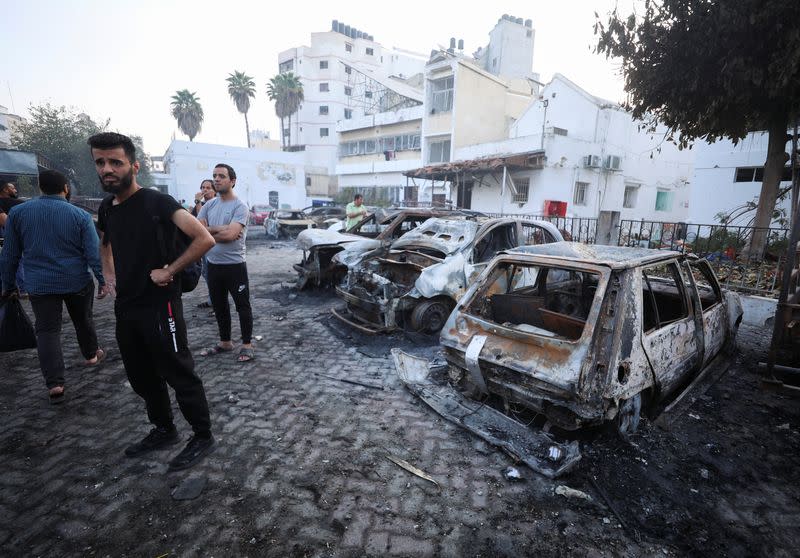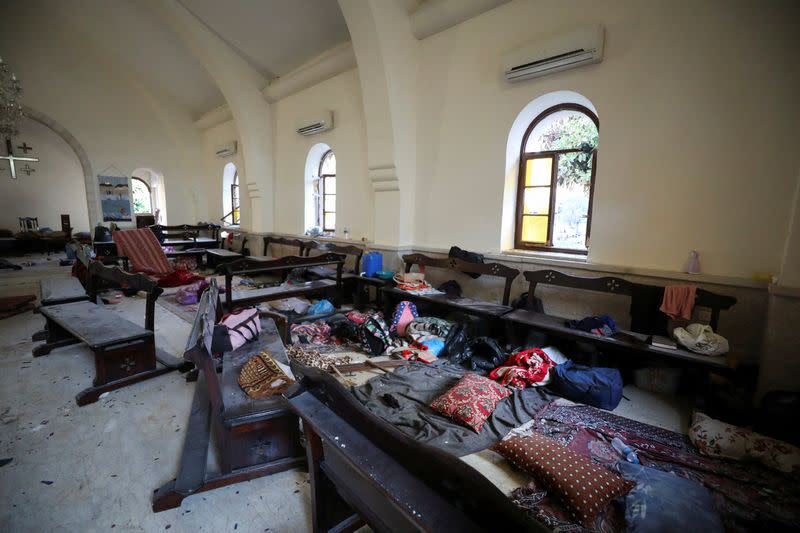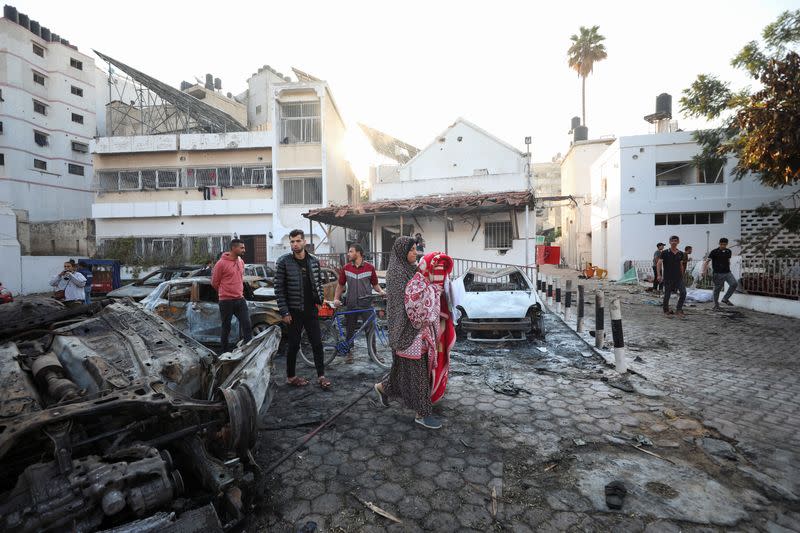Israel military steps up denial it hit Gaza hospital, says building undamaged
JERUSALEM (Reuters) -Israel's military published on Wednesday what it described as evidence that a misfired Palestinian rocket, rather than one of its own munitions, caused an overnight explosion at a Gaza hospital in which hundreds of people died.
Hamas, the Palestinian militant group that controls Gaza, has blamed the blast on Israel. Israel says it was a result of a failed rocket launch by Palestinian Islamic Jihad, another militant group in the enclave.
In an English-language briefing televised shortly before U.S. President Joe Biden landed in Israel for a solidarity visit, chief military spokesperson Rear Admiral Daniel Hagari said an investigation had "confirmed that there was no IDF (Israel Defence Forces) fire from the land, sea or air that hit the hospital".
He said there was no structural damage to buildings around the Al-Ahli al-Arabi hospital and no craters consistent with an air strike.
Asked to explain the size of the explosion at the site, Hagari said it was consistent with unspent rocket fuel catching fire. "Most of this damage would have been done due to the propellant, not just the warhead," he said.
Hagari also accused Hamas of inflating the number of casualties from the explosion and said it could not know as quickly as it claimed what had caused the blast.
The death toll from the hospital explosion was by far the highest of any single incident in Gaza during the current violence, triggering protests in the occupied West Bank and in the wider region, including in Jordan and Turkey.
Hagari said some 450 rockets fired from Gaza had fallen short and landed inside the Strip within the last 11 days.
"We have intelligence about communication between terrorists talking about rockets misfiring," Hagari said.
The Israeli military then published what it said was an audio recording of such a conversation, with English captions.
Before Tuesday's blast, health authorities in Gaza said at least 3,000 people had died in Israel's 11-day bombardment that began after a Hamas Oct. 7 rampage on southern Israeli communities in which 1,300 people were killed and around 200 were taken into Gaza as hostages.
The fighting has raised fears of a widening war in the Middle East. The United States has sent aircraft carriers to support Israel, while allies of Hamas including Iran and Tehran's Lebanese proxy Hezbollah have vowed to respond to a planned Israeli ground invasion of Gaza.
Flare-ups on the Iraeli-Lebanese border since the Hamas attack on Oct. 7 have been the deadliest in 17 years, killing several Hezbollah fighters, three civilians in Lebanon and at least three Israeli soldiers.
(Reporting by Dan Williams, writing by John Davison, Editing by Alex Richardson and Gareth Jones)



